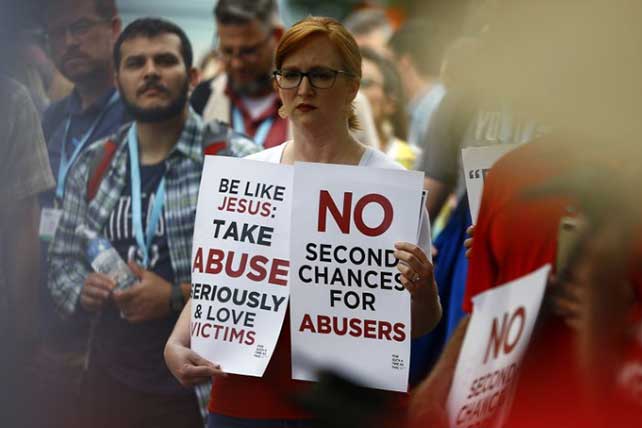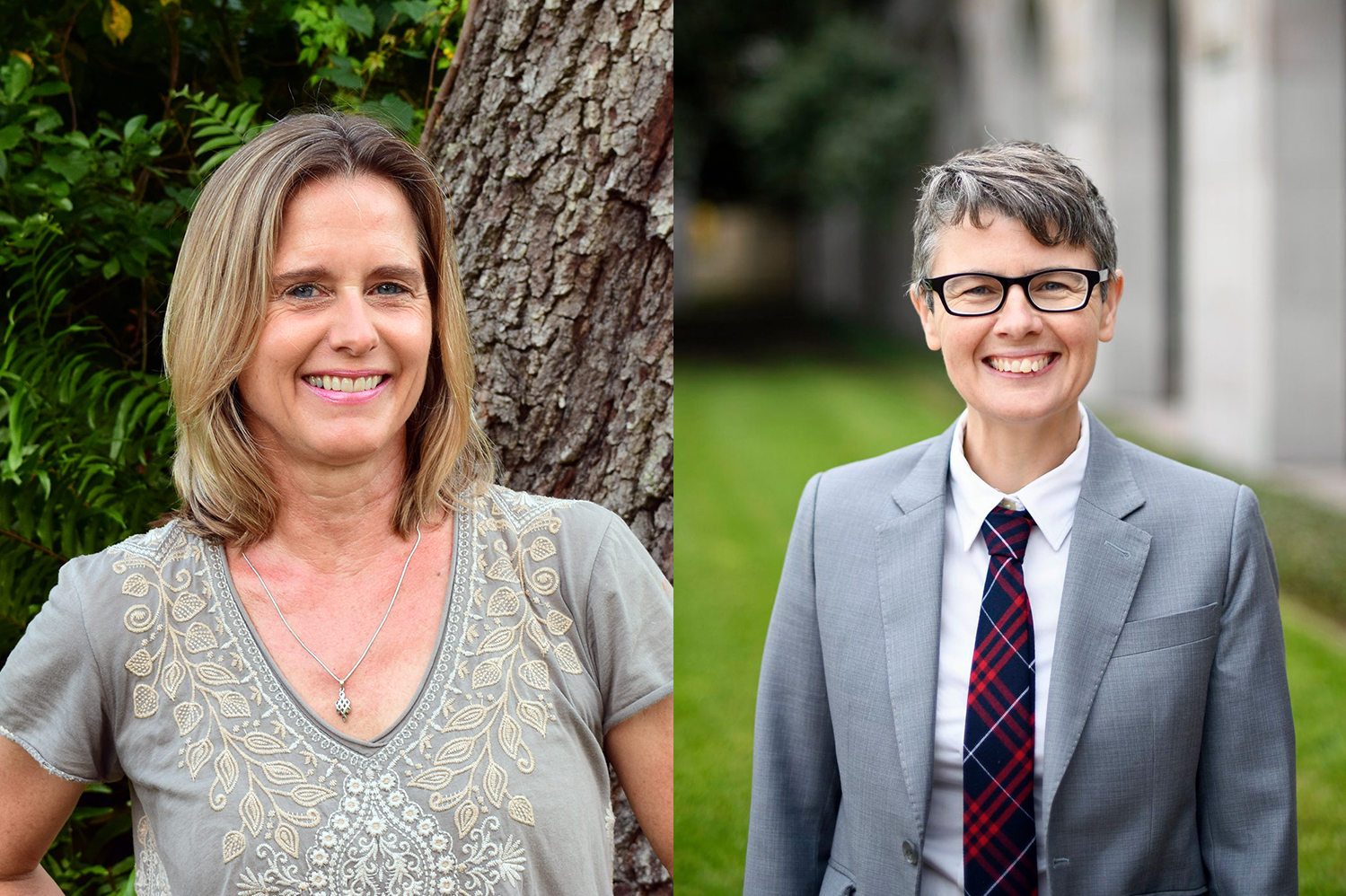Define abuse
Faith groups often struggle to respond effectively to sexual misconduct because they lack consensus on what “counts” as abusive. Gleig, who is teaming up with Langenberg on a book-length study called “Abuse, Sex, and the Sangha,” told Religion News Service that in Buddhist contexts, the category of abuse is often contested. In some cases, Gleig said, “abuse can be framed as a Buddhist teaching — for example, that this wasn’t abuse, it was actually some kind of skillful form of pedagogy.”
Amy Langenberg, left, and Ann Gleig. (Photos courtesy of Rice University)
In churches, Lim has found that loose definitions of abuse can lead to a form of “spiritual bypassing,” where abuse is framed as a mistake to be prayed about, rather than an act of harm that requires tangible accountability.
Conversations about sexual abuse in religious settings are often framed around clergy abuse of children. But faith groups must also account for peer-on-peer violence among children and teens, as well as abuse of adults. Key to preventing such abuse, Pooler said, is having a robust definition of sexual abuse that goes beyond mere legal metrics and includes things such as sexual conversations, nonconsensual touch and sexual jokes and language.
Recognize power dynamics
The unequal power dynamics inherent to religious settings are an enormous barrier to equitably addressing sexual abuse. But the law is beginning to account for this imbalance. In at least 13 states and the District of Columbia, it’s illegal for clergy to engage in sexual behavior with someone in their spiritual care — and many experts believe this standard, which is widely embraced when it comes to doctors and therapists, should be universal in religious settings, too.
According to Pooler, religious groups should work to share power among multiple leaders and ensure that the broader community has decision-making authority. And when sexual abuse allegations involve a religious leader, “the person should be placed on some type of leave where they are no longer influencing or speaking,” said Pooler, “because what I have seen is abusive people will try and grab ahold of the microphone and shape a narrative immediately.”
Center survivors
Experts commonly observe a default reaction in religious settings to to protect the reputation of the faith group or clergyperson over investigating an abuse allegation. But defensive postures often overlook the person who, at great risk, reported the abuse in the first place.

Rowena Chiu, from left, Jean Nangwala, Irene Cho, and facilitator Bigad Shaban participate in a panel during the Freely In Hope event titled “Redeeming Sanctuaries: Ending Sexual Abuse in the Church” in San Francisco in June 2023. (Photo courtesy of Freely in Hope)
When a survivor shares abuse allegations, faith groups often fear what will happen if they take the report seriously. For example, Navila Rashid, director of training and survivor advocacy for Heart, a group that equips Muslims to nurture sexual health and confront sexual violence, said Muslim communities can be hesitant to address sexual violence because they don’t want to add to existing Islamophobic narratives about the violence of Islam. But Rashid told RNS it’s vital to believe survivors. “If we can’t start off from that premise, then doing and creating preventative tools and methods is not going to actually work,” she said.
Pooler advises groups to make sure survivors “sit at the steering wheel” of how the response is handled — if and when personal details about the survivor are shared, for example, should be entirely up to them. Caring for abuse survivors requires taking their needs seriously at every juncture, even before abuse is reported, according to Pooler and other experts. That’s why background checks are vital.
“You don’t want to put somebody that has abused a minor ever in a role of supervising minors,” McChesney told RNS.


